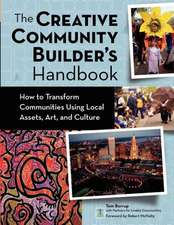Leading Rogue State: The U.S. and Human Rights
Autor Judith R. Blau, David L. Brunsma, Alberto Moncada, Catherine Zimmeren Limba Engleză Paperback – 30 ian 2009
| Toate formatele și edițiile | Preț | Express |
|---|---|---|
| Paperback (1) | 446.53 lei 6-8 săpt. | |
| Taylor & Francis – 30 ian 2009 | 446.53 lei 6-8 săpt. | |
| Hardback (1) | 1545.62 lei 6-8 săpt. | |
| Taylor & Francis – 30 aug 2008 | 1545.62 lei 6-8 săpt. |
Preț: 446.53 lei
Nou
Puncte Express: 670
Preț estimativ în valută:
85.44€ • 89.45$ • 70.70£
85.44€ • 89.45$ • 70.70£
Carte tipărită la comandă
Livrare economică 05-19 aprilie
Preluare comenzi: 021 569.72.76
Specificații
ISBN-13: 9781594515897
ISBN-10: 1594515891
Pagini: 264
Dimensiuni: 156 x 234 x 18 mm
Greutate: 0.39 kg
Ediția:1
Editura: Taylor & Francis
Colecția Routledge
Locul publicării:Oxford, United Kingdom
ISBN-10: 1594515891
Pagini: 264
Dimensiuni: 156 x 234 x 18 mm
Greutate: 0.39 kg
Ediția:1
Editura: Taylor & Francis
Colecția Routledge
Locul publicării:Oxford, United Kingdom
Recenzii
“This is a tightly organized volume of short essays by sociologists who advocate greater participation by the U.S. in the international human rights system; or, perhaps more accurately, they advocate a broader provision of international human rights within the U.S. It appears that most of the authors are affiliated with a fairly new activist group that calls itself Sociologists without Borders, but in any case, this is a volume that specifically advocates action. The authors characterize the U.S. as a “rogue state,” since it is internationally a laggard in the provision of social rights. The introduction by Frances Fox Piven, a well-known progressive social scientist, argues that it will only be through the organized action of social movements that a fuller menu of rights is likely to be made available to ordinary Americans. The volume is organized topically around different classes of rights (for children, women, and indigenous peoples). Each essay is short, to the point, and accompanied by a bibliography. Recommended.
—CHOICE
"The collection is particularly well suited for beginning students who want to understand the range of issues encompassed by the field of human rights, as well as the international standards governing particular issues and how U.S. behavior falls short of those standards. . . . Excellent both for providing a quick overview of a single issue, and for facilitating comparisons across issues. . . . Any reader interested in the international standards governing a particular right and U.S. action or inaction on that right, will find this a good place to start."
—H-Net Reviews
“Where once the United States saw itself—and the world saw it—as the savior of oppressed peoples, the United States is now seen as the leading rogue state. In fact, the grounds for American moral hubris were always shaky. How could the United States be a champion of human rights in the world when for two centuries, the fundamental rights embedded in the U.S. constitution, in U.S. political culture, and in U.S. laws had never been widely honored?”
—from the foreword by Frances Fox Piven
“An important book. … The contributors recap the relevant international standards and show the systematic, not merely accidental, failure of the United States to comply with these norms. And they admirably insist not only that international human rights apply to the United States but that this country in particular must be held to the highest level of performance.”
—from the postscript by Jack Donnelly
—CHOICE
"The collection is particularly well suited for beginning students who want to understand the range of issues encompassed by the field of human rights, as well as the international standards governing particular issues and how U.S. behavior falls short of those standards. . . . Excellent both for providing a quick overview of a single issue, and for facilitating comparisons across issues. . . . Any reader interested in the international standards governing a particular right and U.S. action or inaction on that right, will find this a good place to start."
—H-Net Reviews
“Where once the United States saw itself—and the world saw it—as the savior of oppressed peoples, the United States is now seen as the leading rogue state. In fact, the grounds for American moral hubris were always shaky. How could the United States be a champion of human rights in the world when for two centuries, the fundamental rights embedded in the U.S. constitution, in U.S. political culture, and in U.S. laws had never been widely honored?”
—from the foreword by Frances Fox Piven
“An important book. … The contributors recap the relevant international standards and show the systematic, not merely accidental, failure of the United States to comply with these norms. And they admirably insist not only that international human rights apply to the United States but that this country in particular must be held to the highest level of performance.”
—from the postscript by Jack Donnelly
Cuprins
Introduction, Frances Fox Piven; Chapter 1 Human Vulnerabilities, Bryan S. Turner; Chapter 2 Rights to Housing, Dave Overfelt, David L. Brunsma; Chapter 3 Health as a Human Right, Antonio Ugalde, Núria Homedes; Chapter 4 Labor Rights and Rights of Workers, Vincent J. Roscigno, Andrew Martin; Chapter 5 Rights of the Child, Brian Gran; Chapter 6 Rights of Migrants and Minorities, Cecilia Menjívar, Rubén G. Rumbaut; Chapter 7 Women’s Rights, Tola Olu Pearce; Chapter 8 Rights of People with Disabilities, Jean Lynch; Chapter 9 Rights of Indigenous Peoples, Keri E. Iyall Smith; Chapter 10 The Human Right to Sexual and Gender Self-Expression, Gerald F. Lackey; Chapter 11 Language Rights as Human Rights, Golash-Boza Tanya, Douglas Parker; Chapter 12 Cultural Rights, Rodney D. Coates; Chapter 13 Rights to Water, Food, and Development, Jenniffer M. Santos-Hernández, John Barnshaw; Chapter 14 Environmental Rights, Damayanti Banerjee; Chapter 15 Rights of Prisoners, Hattery Angela, Earl Smith; Chapter 16 Human Rights and International Humanitarian Law, John Hagan, Wenona Rymond-Richmond; Chapter 17 Rights to Part Icipate in Democracy, Mark Frezzo; Chapter 18 The Social Forum Process and Human Rights, Marina Karides; Chapter 19 Freedom and Security, Judith Blau, Alberto Moncada; postscript Postscript, Jack Donnelly;
Notă biografică
Authored by Blau, Judith R.; Brunsma, David L.; Moncada, Alberto; Zimmer, Catherine
Descriere
Most Americans would be surprised to learn that their government has declined to join most other nations in UN treaties addressing inadequate housing, poverty, health care, racial discrimination, and migrant workers. This book documents how the US has, declined to ratify widely accepted treaties on these and many other basic human rights.













